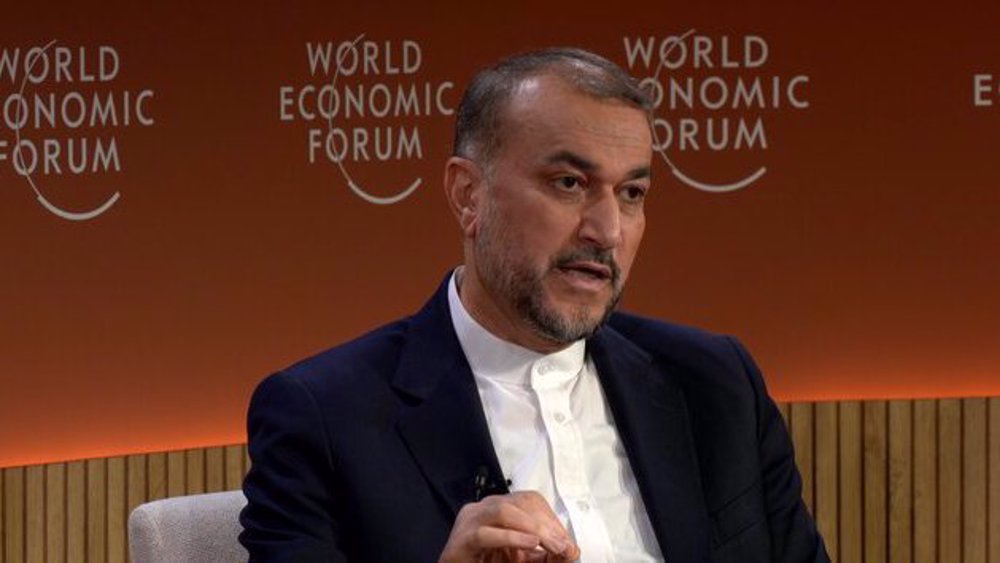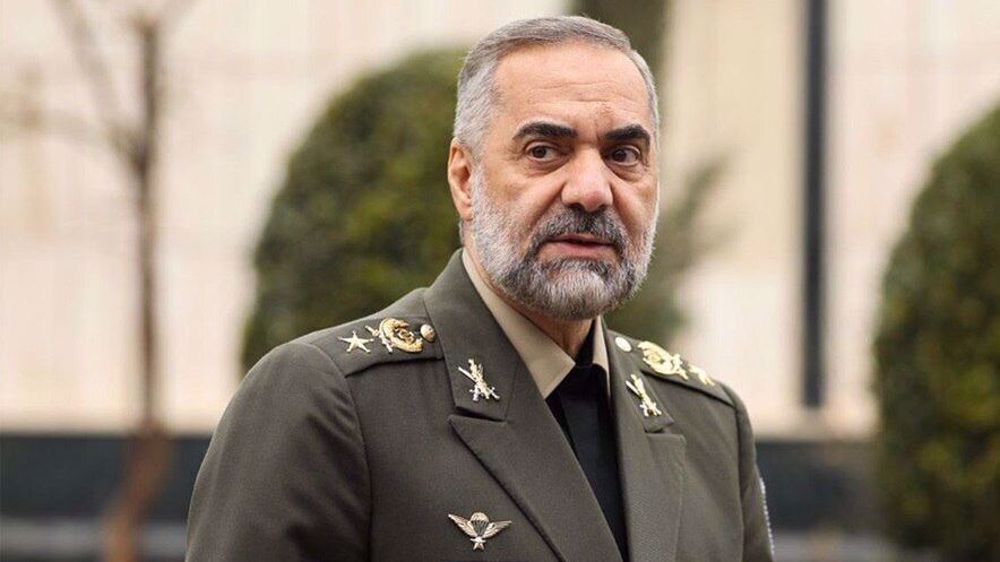Iran attack didn't target Pakistani nationals, but Iranian terrorists: FM Amir-Abdollahian
Iran's foreign minister says the country's Tuesday missile attack on areas in Pakistan adjacent to Iranian borders was directed at the so-called Jaish al-Adl terrorist group and no Pakistani national was targeted.
Speaking at the World Economic Forum in Davos on Wednesday, Hossein Amir-Abdollahian said members of the terrorist group are Iranians who have taken shelters in Pakistan and that Tehran had repeatedly warned Islamabad to prevent their anti-Iran cross-border operations.
"None of the nationals of the friendly and brotherly country of Pakistan were targeted by Iranian missiles and drones," he said.
"The so-called Jaish al-Adl group, which is an Iranian terrorist group, was targeted," he said, adding that this was a response to the recent attacks on Iran by the group, which he said is linked to Israel.
Jaish al-Adl, which was formed in 2012, has carried out several attacks on Iranian soil in recent years.
The group claimed responsibility for an attack in December on a police station in the southeastern city of Rask that killed at least 11 Iranian police officers. On January 10, another attack by the group on a police station in the city killed a policeman.
On Tuesday, Iran launched simultaneous drone and missile attacks into two bases of Jaish al-Adl.
The strike came after Iran launched missile attacks on spy headquarters and terrorist targets in Syria, and in Iraq's autonomous Kurdistan region.
‘Attacks meant to boost regional security’
The minister also touched on Iran’s attack into Iraq’s Kurdistan region, saying they were retaliation for recent anti-Iran attacks staged by Israel’s Mossad.
The Iranian minister said Tehran has shared intelligence with Iraq about Mossad activities in Iraq’s Kurdistan, adding that Israel is an enemy of both Iraq and Iran.
He cited a 2023 security pact between Iran and Iraq, saying it obliges Iraqi officials not to allow Iran’s security to be threatened from their soil.
The top Iranian diplomat said Iran respected the sovereignty and territorial integrity of Pakistan and Iraq but would strongly react to any attack on its national security.
"We respect the sovereignty and territorial integrity of Pakistan and Iraq, but we do not allow our national security to be compromised, and we have no compunction about [dealing with] terrorist parties inside Pakistan and Israeli movements in the Kurdistan region of Iraq."
He said the attacks were aimed at protecting the security of Iran, its neighbors, and also the wider region.
"What we did was aimed at boosting the security of Iran, Pakistan, Iraq, and the region. We consider the security of Iraq and Pakistan to be that of the Islamic Republic of Iran," he said.
‘End of Gaza war will calm region’
In his remarks, Amir Abdollahian said the only solution to prevent escalation in the Red Sea and other parts of the region is for the US-Israeli genocide of Palestinians in Gaza to come to an end.
He said Iran had repeatedly warned that the continuation of the genocide against Palestinians will lead the Gaza war to spread to other parts of the region.
He also urged Washington to stop its unwavering support for Israel, and to push for an end to the onslaught.
He said Washington’s support for Israel was its first mistake concerning the ongoing situation in the region, and its second mistake was staging direct attacks on Yemeni boats.
Amir-Abdollahian stressed the importance of maritime security in the Red Sea, saying Iran conducts much of its trade through seas and it benefits from security in international waters.
He said Yemen also believes that international waters must be secure, and that its attacks are only aimed at bringing the Israeli genocide in Gaza to a halt.
Amir-abdollahian warned that “everyone will be harmed" if Israel’s crimes in Gaza do not stop immediately.
"An end to the genocide in Gaza will lead to an end of attacks and crises in the region.”
US fighter aircraft shot down ‘in friendly fire’ amid aggression on Yemen
Yemeni FM: Israel’s sponsors accountable for ongoing aggression on Sana’a
Eight Palestinians killed as Israel attacks Gaza school, hospitals
VIDEO | Rome, Milan host new protests in solidarity with Palestinians
Dec. 21: ‘Axis of Resistance’ operations against Israeli occupation
Spain jurists demand ties with Israel ties be cut
VIDEO | Press TV's news headlines
VIDEO | Iran honors top Science Olympiad medalists











 This makes it easy to access the Press TV website
This makes it easy to access the Press TV website